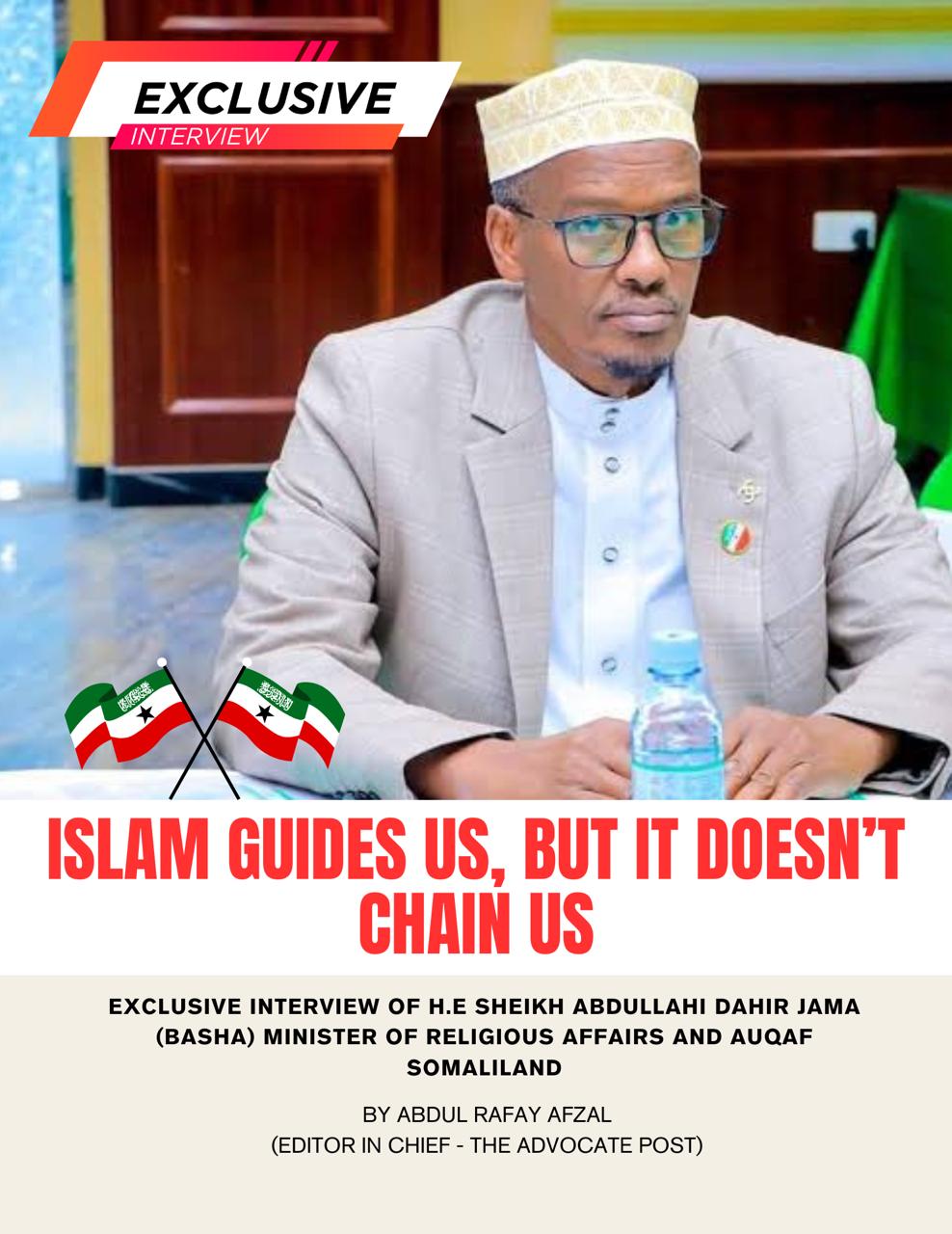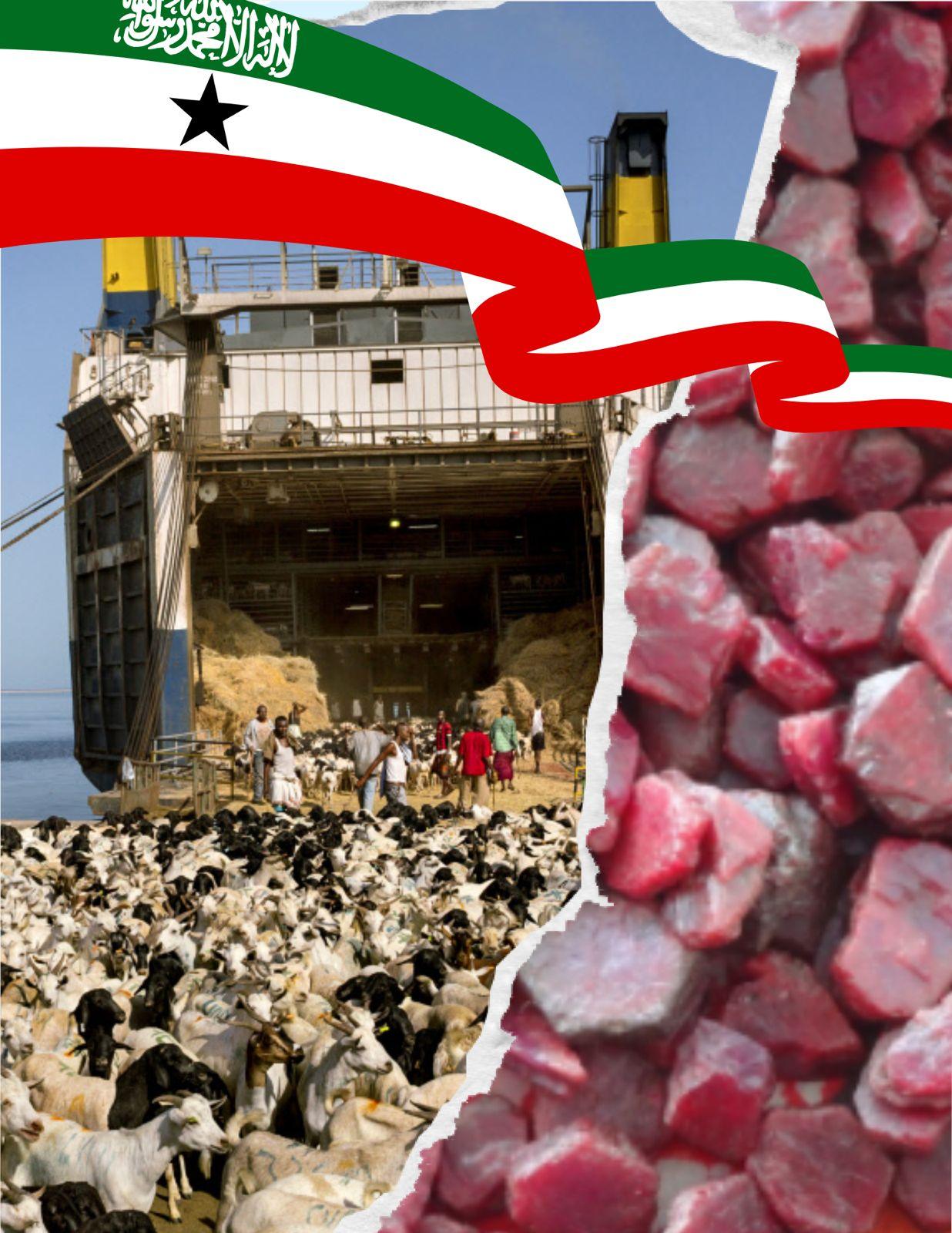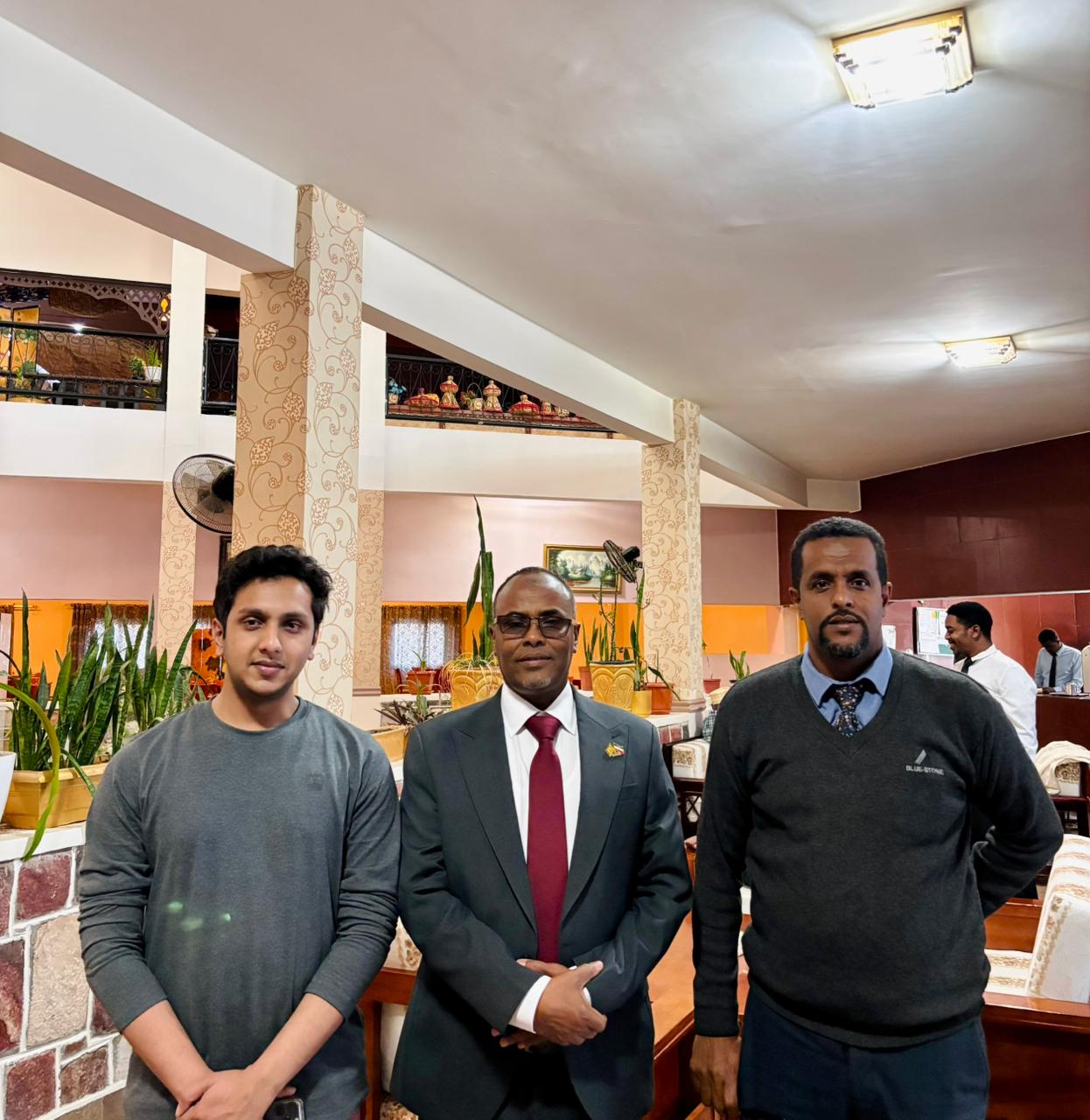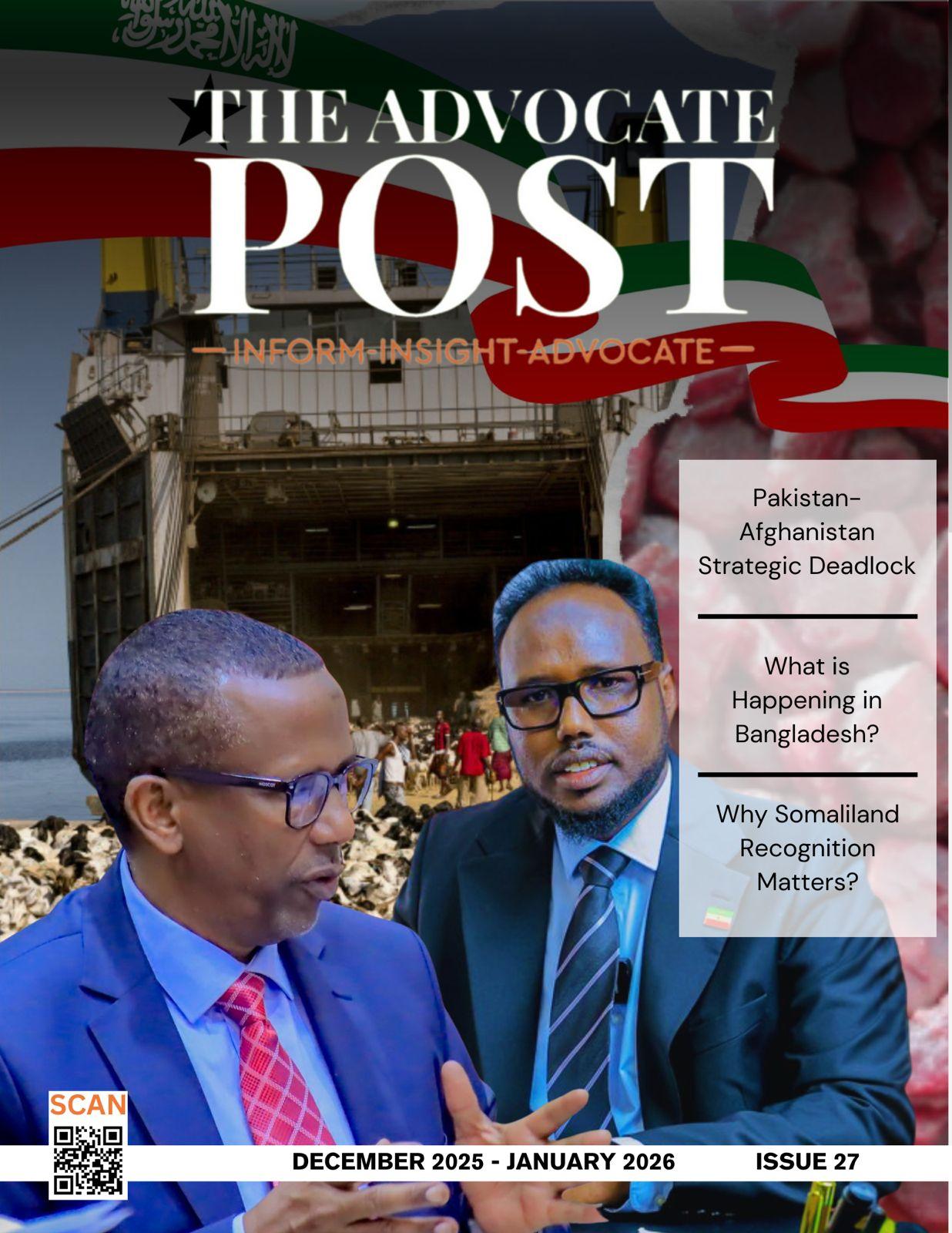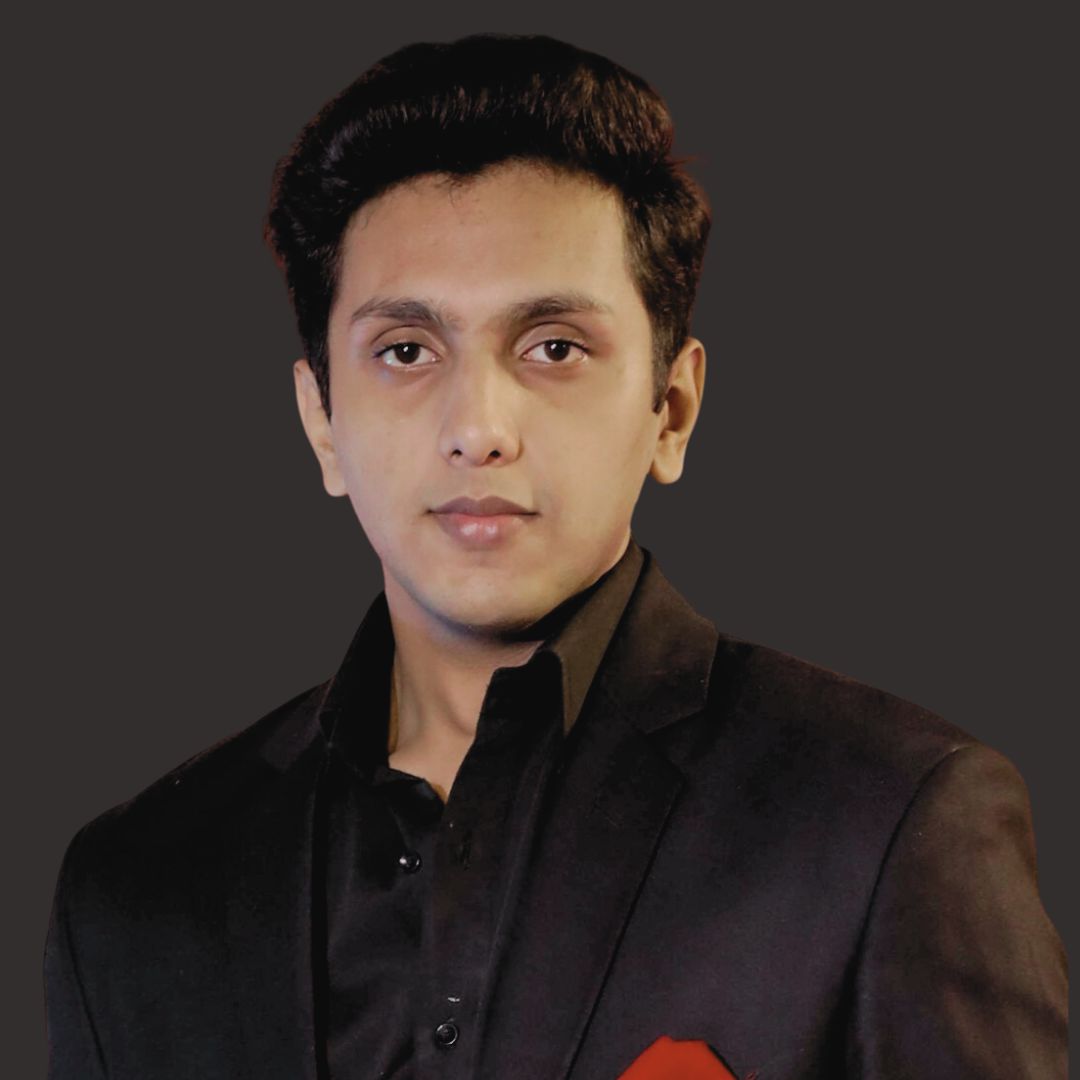Islam Guides Us, But It Doesn’t Chain Us
In an exclusive sit-down with THE ADVOCATE POST by Abdul Rafay Afzal (Editor in Chief) during his Official Visit to Somaliland, Minister of Religious Affairs and Auqaf, H.E. Sheikh Abdullahi Dahir Jama (Basha), in which he explained the functioning democracy of this Nation, how this hybrid model works — and what it says to both the Muslim world and Western democracies.
Somaliland is one of the world’s most overlooked democracies — and possibly one of the most misunderstood. It is self-declared, unrecognized, and yet politically stable in a region often associated with turmoil. Its secret? A blend of deeply rooted Islamic tradition and functional democracy.
Constitution, Faith, and Modern Governance
Q. Abdul Rafay Afzal (ARA): Minister Jama, Article 5 of your Constitution declares Islam as the only religion that can be propagated. Can such a clause coexist with freedom of belief?
Minister Jama: Yes, and here’s how. We do not police personal belief. People of other faiths live here. A Christian NGO worker, a Hindu businessman — they are not harassed for praying at home. But we do not allow proselytizing. That’s not repression; it’s a boundary. Every society has red lines. France bans hijab in classrooms. Ours are different, but not unique.
We guarantee religious privacy. That’s more than many secular states offer. Our public life is Islamic — yes. But we don’t inspect homes or target people for their faith. Tolerance doesn’t mean dilution. It means respect within boundaries.
Elections, Extremism, and the Democratic Experiment
ARA: Somaliland holds regular elections. But how do you prevent religion from becoming a political weapon?
Minister Jama: That’s why we don’t allow religious parties. Islam is in our governance DNA — not in our campaign slogans. We regulate Friday sermons, train imams to avoid political preaching, and if any mosque uses the pulpit for incitement — we revoke licenses.
ARA: What about terrorism? You’ve avoided attacks that plague Somalia. Why?
Minister Jama: Community intelligence. Moderate religious education. And frankly — no foreign meddling. We train our imams in counter-extremism. Every cleric is taught that radical ideology is a distortion of Islam, not a defense of it.
The Zakat System and Social Justice
ARA: Somaliland is planning to launch a Zakat and Baitul-Maal system. What’s the vision behind it?
Minister Jama: Our goal is to institutionalize compassion. Right now, Zakat is largely informal — personal, emotional, and often untracked. We believe it’s time to build a structured, transparent system that ensures every donation reaches those truly in need: orphans, widows, the disabled, the poor.
ARA: Will you be adopting models from other countries?
Minister Jama: Absolutely. We are studying the Zakat and Baitul-Maal frameworks of several countries — particularly Pakistan and some Arab states, where such systems have been formalized with great care. Pakistan’s Ehsaas and digital Baitul-Maal initiatives are especially promising. We’re not reinventing the wheel; we want to learn, adapt, and improve.
ARA: Do you see this replacing government-led welfare?
Minister Jama: Not at all. This is about strengthening the social safety net, not outsourcing it. Zakat is a religious obligation, but it can work in harmony with state welfare. Our dream is a digital, accountable, and faith-driven network — one that’s open to advice, technical support, and partnerships with other Muslim nations who share this noble goal.
ARA: You’ve praised Pakistan’s Raiwind Ijtema. Why?
Minister Jama: Raiwind is a revolution of peace. Imagine — three million Muslims, no police, no politics — only prayer and talks about spreading love and peace It’s truly inspiring. Many of our ulema have attended this gathering over the years and received deep lessons from it. Pakistan is among the pioneers of this peaceful Islamic revival, and we in Somaliland appreciate that very much. It shows what real Islam looks like — not terror, but tears for humanity.
The International Paradox
ARA: Does Somaliland’s lack of international recognition affect your ability to shape religious policy?
Minister Jama: Not directly. We fund our own mosques, train our own clerics, and run our own religious institutions — without UN aid or World Bank loans. We’ve built 24 universities without foreign grants. But recognition would help us scale these efforts. Imagine what we could achieve with access to international educational and technological platforms.
ARA: Would Somaliland consider hosting a regional or International Ulema conference in the future?
Minister Jama: Absolutely. It’s not just possible — it’s something we’re actively working on. Our goal is to bring together respected Islamic scholars to show the world who we really are: peaceful, rooted in tradition, and deeply connected to Islamic values. Somaliland is ready to learn, to engage, and to share. We welcome dialogue and cooperation. In the near future, InshaAllah, you’ll see Hargeisa hosting scholars from across the Muslim world — not for politics, but for unity and reflection.
ARA: What message do you want to give to the world about your country?”
Minister Jama: Somaliland is a story the world needs to hear — a story of peace, resilience, and self-reliance. We rebuilt ourselves without foreign troops, we hold democratic elections, we have freedom of religion and press, and we’ve chosen dialogue over division.
We may not be officially recognized yet, but recognition isn’t what built our roads, schools, or mosques — our people did.
To the world, I say: don’t look at our size, look at our example. Somaliland stands as proof that African nations can solve African problems — with dignity, with faith, and with peace.
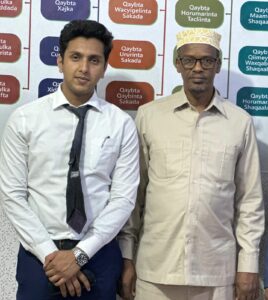
Editor’s Insight:
In this interview, Minister Jama offers a rare and refreshing portrayal of Somaliland — a nation rooted in peace, faith, and quiet resilience. His praise for Pakistan’s Raiwind Ijtema isn’t just admiration; it’s a reflection of shared values. By highlighting the attendance of Somali scholars at such gatherings, he positions Somaliland within a global Islamic tradition centered on learning, unity, and compassion — far from the narratives of extremism often associated with the region.
His message to the world is clear: Somaliland may lack formal recognition, but it has built a functioning democracy, maintained peace, and fostered religious and civic life without foreign intervention. In a time when conflict and instability dominate headlines, Jama’s words remind us that dignity, self-reliance, and spiritual grounding can shape a nation’s identity just as powerfully as politics or borders.
About the Interviewer:
Abdul Rafay Afzal is the Editor in Chief of The Advocate Post and Pakistan’s youngest international journalist. He writes perceptive columns on geopolitics, international relations, and legal affairs etc. in more than 15 countries providing unique insights into the global landscape in different Pakistani and International Newspapers and Media outlets in English & Urdu languages. He can be reached at @arafzal555 on instagram

